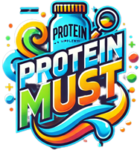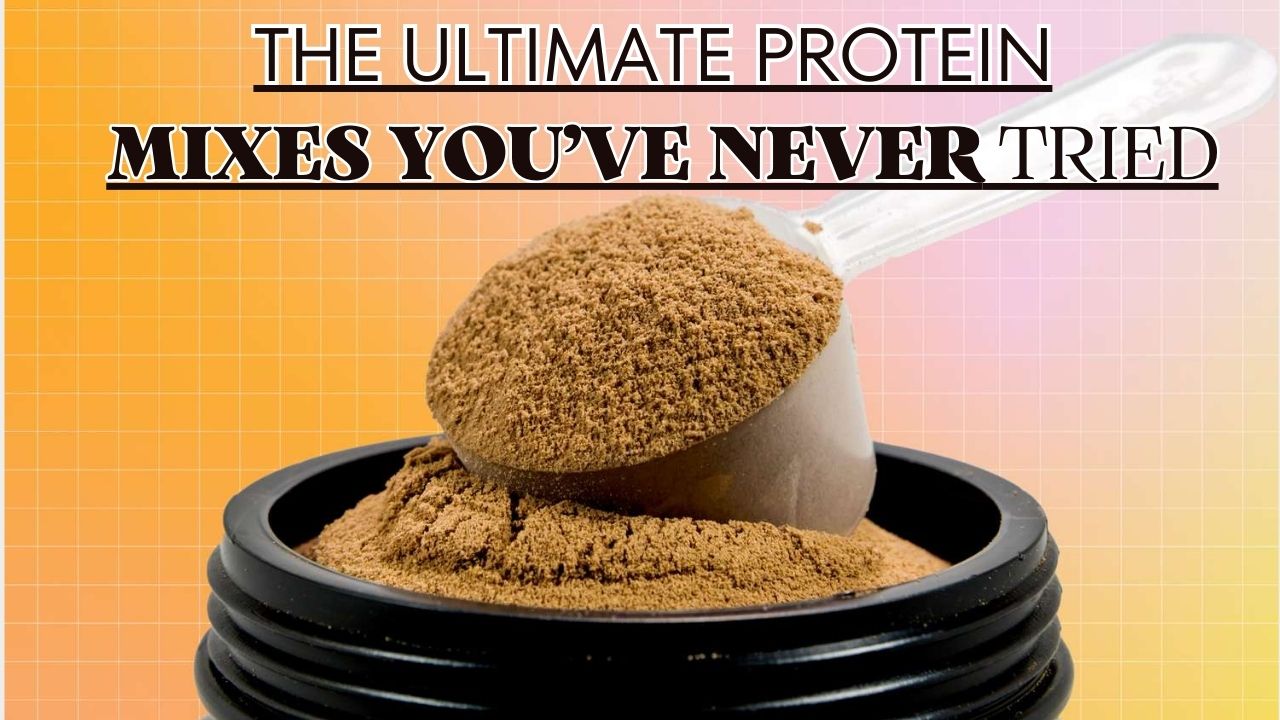
When to Eat Protein Bars: The Secret to Max Results
Who doesn’t love a protein bar, especially when it’s tasty, convenient, and fits into your diet seamlessly? With so much choice available nowadays, it’s easy to feel confused about the best options. Adding protein to your diet doesn’t have to be a struggle. Products like RAWBITE Crunchy Almond or Smooth Cacao bars offer macro-friendly options that feel less like a chore and more like a treat. In this article you will have a overview regarding protein bar but also regarding the best time to consume those protein bars. Also read

Protein Bars: The Surprising Best Times to Eat Them
For those seeking a healthy, balanced approach or aiming to achieve athletic goals, consider vegan protein bars without added sugar. They are a super easy way to ensure you’re meeting your dietary needs while staying on track. Whether for a rush snack or post-workout fuel, integrating RAWBITE into your routine can be both satisfying and practical. Take the step toward a smarter, healthier lifestyle with this small but impactful change. Also read Transform Your Protein Shake: Secrets to Better Taste. Lets Dive in the complete psychology behind protein bars and when to eat the protein bars
When Should You Eat Protein Bars?
Proteins support muscle growth, maintain muscles, and help transport oxygen, making them essential for a healthy, balanced diet, especially for sports enthusiasts. A protein bar is perfect post-workout, aiding muscle repair and recovery when eaten within 30 minutes of exercise. During longer workouts, snack on half a bar every 40 minutes to sustain energy. Protein bars also work as satisfying snacks between meals, keeping hunger at bay and helping you focus. However, while one or two bars a day is fine, be mindful of the added calories to maintain a balanced diet.
What Are Protein Bars Used For?
Protein bars are a convenient and nutritious snack designed to support muscle recovery, growth, and promote satiety. They provide an easy way to boost protein intake without needing full meals or protein shakes. Popular among active individuals, they cater to the demands of modern lifestyles and athletic performance.
Leading brands like Grenade, Barebells, Fulfil, and PhD offer nutritious alternatives to traditional chocolate bars, combining functionality with taste, making them a staple for fitness enthusiasts and busy individuals alike.
Why Eat Protein Bars?
Protein bars are rich in protein and fiber, setting them apart from energy or cereal bars, which are often too sweet and nutritionally lacking. The primary purpose of a protein bar is to supplement your diet with additional protein, supporting muscle building, repair, and preventing muscle loss during weight management. This makes them a convenient and effective option for maintaining muscle health and meeting dietary needs in an active lifestyle.
Potential Benefit of Protein Bars:
Protein bars can be a valuable addition to a balanced diet, especially for:
Athletes and active individuals:
Regular exercise increases protein requirements to support muscle building. A high-quality protein bar typically provides 15–20g of protein per 60g serving, covering about 75% of the daily recommended intake for an average adult male.
Muscle repair and recovery:
Protein aids in repairing muscle fibers damaged during training, promoting increased muscle strength and quicker recovery between workouts.
People with dietary challenges:
Protein bars can help those struggling to meet their daily protein needs due to illness, eating disorders, or other factors.
Individuals with difficulty eating solid foods:
They are convenient for those who face challenges eating solid meals due to illness or disability.
Weight Management support:
Increasing protein intake can be helpful for those on a weight-loss journey.
Following are use the tips to use protein to gain your weight management
Weight Loose:
For a cutting phase, you should:
- Lower your overall calorie intake.
- Decrease carbohydrate consumption to promote fat loss, but don’t eliminate it entirely to preserve muscle mass.
- Increase your protein intake.
Weight Gain:
For a bulking phase, you should:
- Boost your protein intake.
- Raise your carbohydrate intake.
Busy parents:
Protein bars serve as a nutritious, on-the-go snack for parents with hectic schedules.
How to Choose a Protein Bar?
Not all bars are created equal, as many on the market are sugary cereal bars rather than true protein bars. To pick the right one, check the nutritional label for proteins, carbohydrates, lipids, and fiber. True protein bars provide around 15g of protein, varying carbohydrate and fat content depending on whether your goal is weight gain or weight loss.
Opt for bars with low glycemic index carbohydrates to prevent energy crashes and prioritize those with more protein than carbohydrates to minimize fat gain and promote lean muscle growth. Choose animal or vegetable-based proteins like milk, egg white, soya, or hemp, and for lactose intolerance, go for egg-white or plant-based options.
Protein requirements:
To support muscle building, it’s generally recommended to consume 1.5 to 2 grams of protein per kilogram of body weight. However, this amount may vary based on factors such as:
- Your level of physical activity.
- Your overall diet.
- Your specific goal, whether it’s muscle gain or fat loss.
To sum up, selecting a quality protein bar involves considering:
- Protein content: Aim for at least 15 grams per bar.
- Protein type: Choose between animal or plant-based protein, depending on your preferences and dietary needs.
- Sugar content: Opt for bars with minimal added sugars.
When to Eat Protein Bars?
Protein bars are most beneficial 30–60 minutes post-workout, aiding muscle repair, growth, and replenishing energy stores. They are also a great pre-workout snack, offering a convenient energy boost when consumed around 45 minutes before exercise to allow for digestion. However, eating too close to a workout may cause bloating or cramps, affecting performance.

You can enjoy protein bars anytime, whether as a breakfast option, a mid-morning or afternoon snack, or to curb hunger before dinner. They’re perfect for on-the-go lifestyles or as a shake alternative. Whether fueling a workout or supporting muscle recovery, protein bars adapt to your unique schedule and needs.
Perfect Timings to grab Protein Bars:
Protein bar after workout:
Post-workout is the perfect time to eat a protein bar. The anabolic window for optimal recovery lasts about 30–60 minutes after exercise, during which your body absorbs nutrients efficiently to repair muscle damage, replenish glycogen stores, and synthesize new proteins. Delaying your snack may reduce its impact on your recovery and body composition goals for this you need to know When to Eat Protein Bars.
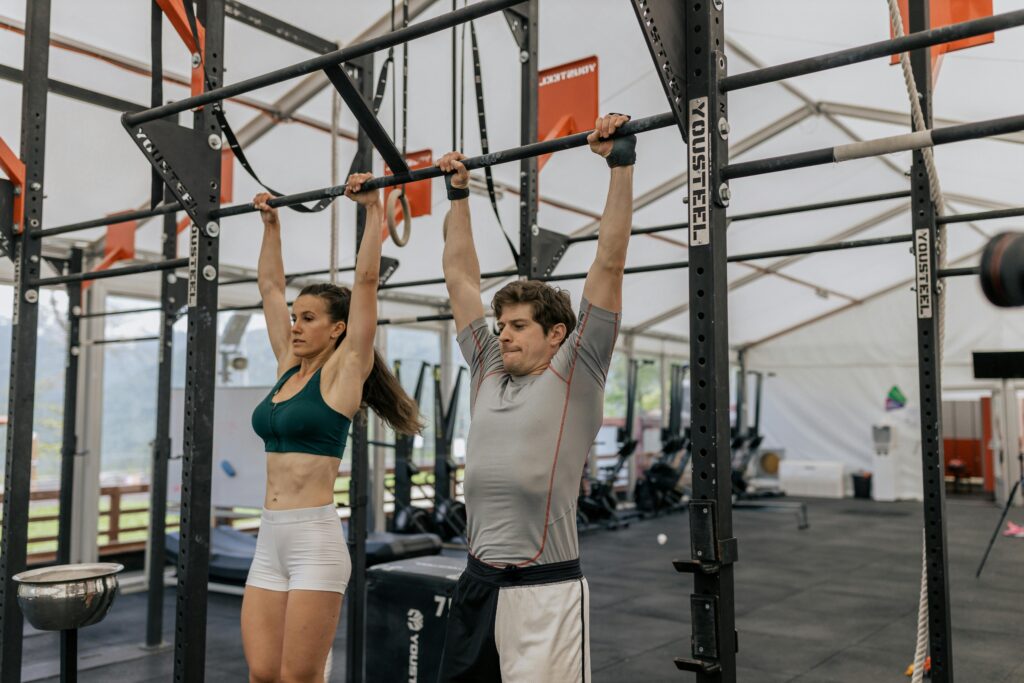
The Best Protein Bar Before Workout
- Brand Recommendation: Barebells is a top choice for pre-workout nutrition.
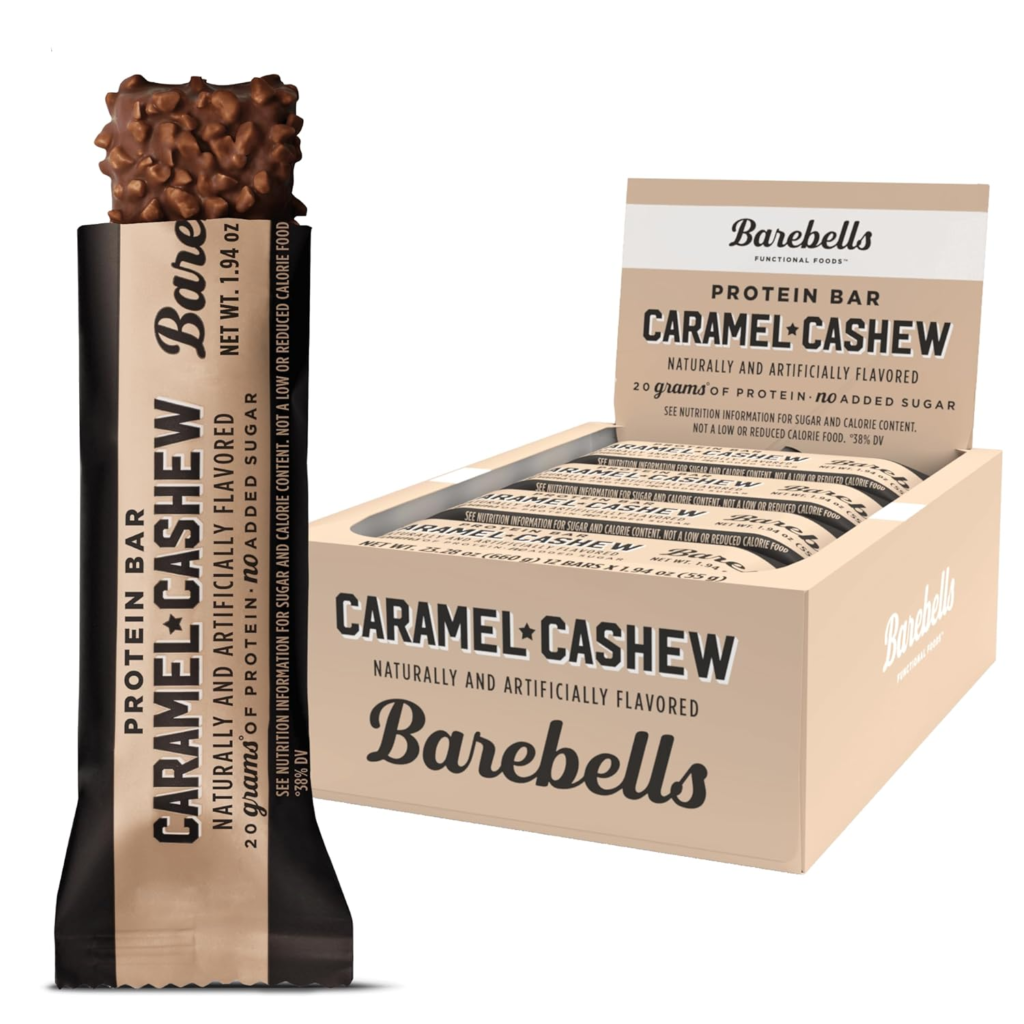
Why Barebells?
- Protein Content: Each bar contains 15–20g of protein, ideal for fueling your workout.
- Flavor Options: Choose from 11 delicious flavors, including:
- Caramel Cashew
- Salty Peanut
- Cookies & Cream
- Mixed Case Option: Try the Barebells Mixed Case Taster Box featuring six popular flavors.
- Vegan and Soft Bars: Barebells offers options to suit various preferences and dietary needs.
On-the-Go Snack
A protein bar offers a portable, on-the-go solution for replenishment, satisfying hunger quickly while helping you stay consistent with your total daily protein intake. Whether you’re rushing after a workout or between tasks, a protein bar is a practical and effective recovery option just you need to know When to Eat Protein Bars.
Protein Bars Before Bed
Protein bars can be an excellent night-time snack, especially when you choose one with low sugar content. They provide a steady supply of amino acids, promoting muscle growth and recovery while you sleep. This makes them a great option to support your fitness goals even during rest.
Between Meals
Feeling hungry between meals is normal, and reaching for a protein bar can be a healthier alternative to less nutritious snacks. It helps you stay satisfied, prevents overeating, and provides a convenient protein boost to maintain your energy levels throughout the day.
Protein Bars as a Meal Replacement
Protein bars can double as a meal replacement, offering a portable and efficient way to meet your nutritional needs. Packed with high-quality protein, fiber, and healthy fats, they keep you full and support muscle growth, maintenance, and repair. While they’re convenient, it’s important to balance your diet with whole foods like fruits and vegetables to ensure you’re getting enough nutrients and calories for sustained energy.
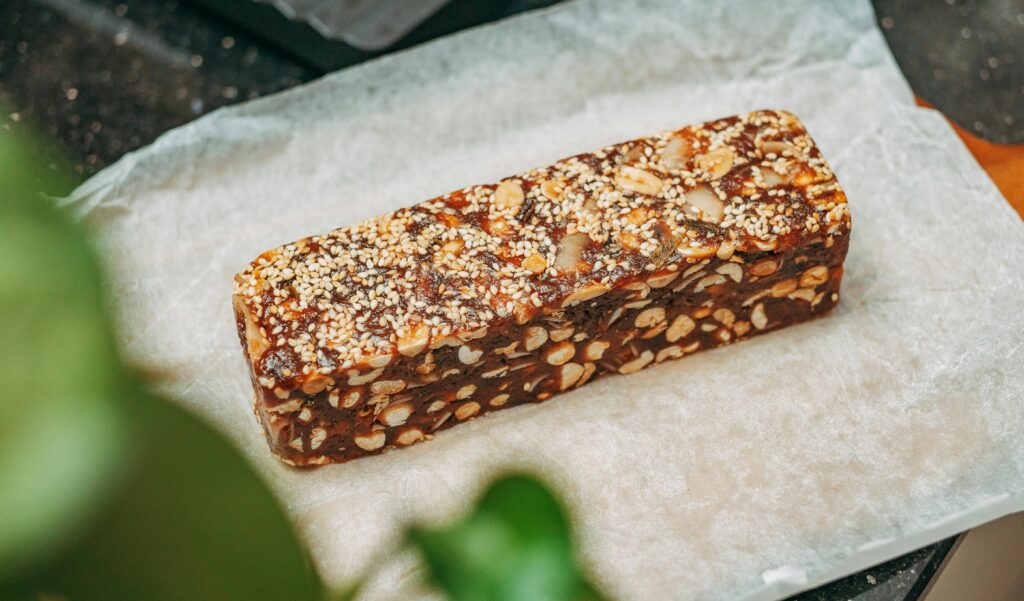
Difference between Protein Bars & Protein shakes:
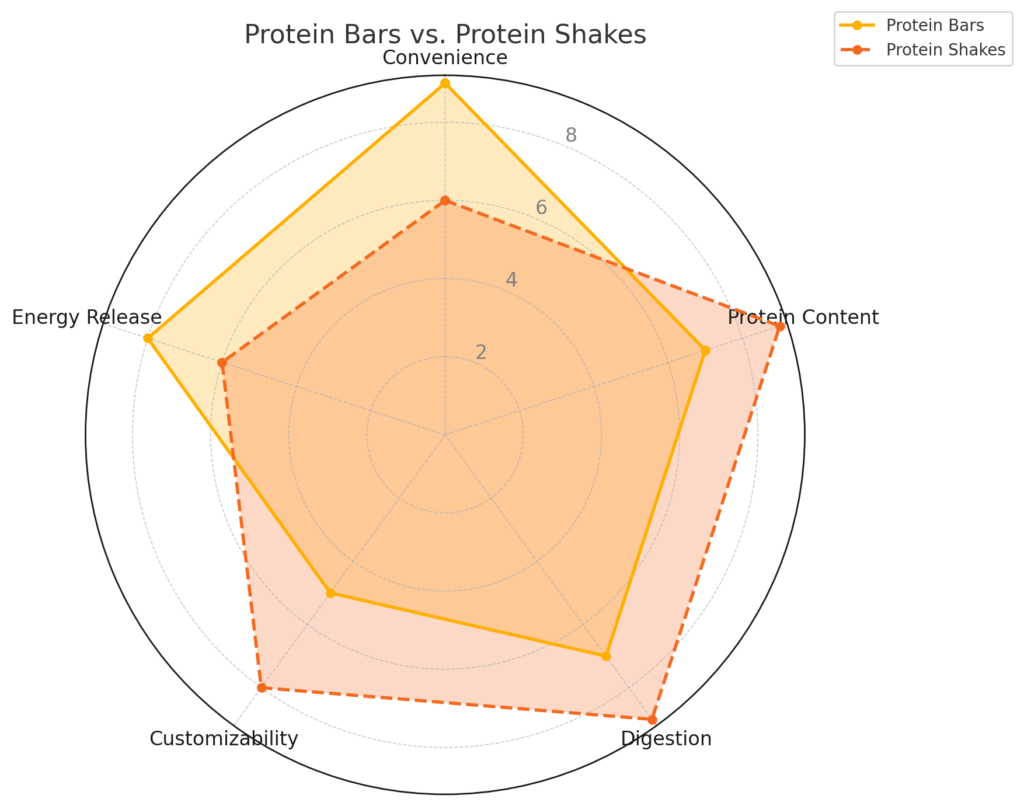
Here’s a radar chart comparing protein bars and protein shakes across key factors:
| Factor | Protein Bars | Protein Shakes |
|---|---|---|
| Convenience | Highly portable and easy to consume on the go. No preparation needed. | Requires mixing (unless pre-made). Less portable than bars but still convenient if prepared. |
| Protein Content | Typically contains 15–20 grams per serving, with additional ingredients like nuts or chocolate. | Offers 20–30 grams per serving, often with fewer extra calories or carbs. |
| Digestion | Requires digestion, providing a slower release of energy during exercise. | Quickly absorbed, ideal for fast protein delivery pre- or post-workout. |
| Customizability | Limited options for customization beyond selecting flavors. | Highly customizable with added ingredients like fruits, milk, or supplements. |
| Energy Release | Provides a steady energy release, ideal for sustained workouts. | Rapid energy boost, suitable for quick workouts or recovery. |
| Taste Variety | Wide range of flavors and textures to satisfy cravings. | Smooth and creamy options, with room to experiment by adding different flavors. |
| Suitability | Great as a snack or meal replacement for busy individuals. | Best for those who need a quick protein fix or prefer a lighter pre-workout option. |
Who Should Avoid Protein Bars?
Individuals with Allergies
Protein bars often contain common allergens like nuts, soy, or dairy. Anyone with these allergies should check labels carefully to avoid adverse reactions.
People Sensitive to Sugar
Those managing diabetes or sensitive to sugar should avoid bars with high levels of added sugars, which can impact blood sugar control.
Whole-Food Diet Enthusiasts
If you prioritize whole-food diets, protein bars may not align with your preference for natural, unprocessed protein sources.
Those Prone to Digestive Discomfort
Protein bars containing artificial sweeteners or high levels of fiber may cause bloating or digestive issues. Monitor how your body reacts and choose accordingly.
Frequently Asked Questions (FAQs):
Can I eat a protein bar after a workout to lose weight?
Absolutely! Protein bars are a convenient option for post-workout recovery, even for weight loss. Choose bars high in protein and low in added sugars to support your goals, and enjoy them as part of a balanced, healthy diet.
Is it okay to eat a protein bar every day?
Yes, it’s fine to have a protein bar daily, as long as it complements a varied diet rich in whole, nutrient-dense foods. Look for bars with minimal added sugars and avoid relying on them as your sole protein source. Moderation and balance are key.
How can I meet my daily protein needs?
Protein bars are versatile and can be added to yogurt, oatmeal, or smoothie bowls for extra flavor and crunch. Pair them with whole protein sources like lean meats, fish, legumes, or tofu to create a balanced diet. For plant-based options, RAWBITE bars are a vegan, gluten-free, and soy-free choice
Are protein bars suitable for a pre-workout snack?
Yes, protein bars are an excellent pre-workout snack when eaten about 45 minutes before exercise. They provide energy and amino acids to fuel your workout and support muscle performance.
Can protein bars replace a full meal?
Protein bars can serve as a meal replacement occasionally, especially when you’re on the go. However, they should not replace whole meals regularly, as they may lack the variety of nutrients found in fresh, balanced meals.
Are protein bars good for muscle building?
Protein bars supply essential amino acids that help repair and build muscle tissues. Consuming them post-workout optimizes muscle recovery and supports growth, especially when combined with strength training.
What should I look for in a high-quality protein bar?
Choose protein bars with at least 15–20g of protein, low sugar content, healthy fats, and added fiber. Avoid bars with artificial ingredients or excessive carbohydrates unless they align with specific dietary goals.
Can I eat a protein bar before bed?
Yes, eating a low-sugar protein bar before bed provides a steady supply of amino acids overnight, promoting muscle repair and recovery while you sleep. This is particularly beneficial for those with active lifestyles or fitness goals.
Conclusion:
Protein bars are a versatile and convenient snack that can be enjoyed at various times based on your needs. They are ideal post-workout, within 30–60 minutes, to support muscle recovery and energy replenishment. As a pre-workout snack, eaten 45 minutes prior, they provide a quick energy boost and prevent fatigue. Protein bars also work as meal replacements or between-meal snacks, keeping hunger at bay and supporting daily protein intake. Whether for building muscle, maintaining energy, or simply satisfying a craving, protein bars fit seamlessly into active and busy lifestyles, making them a practical choice for health and fitness goals.
